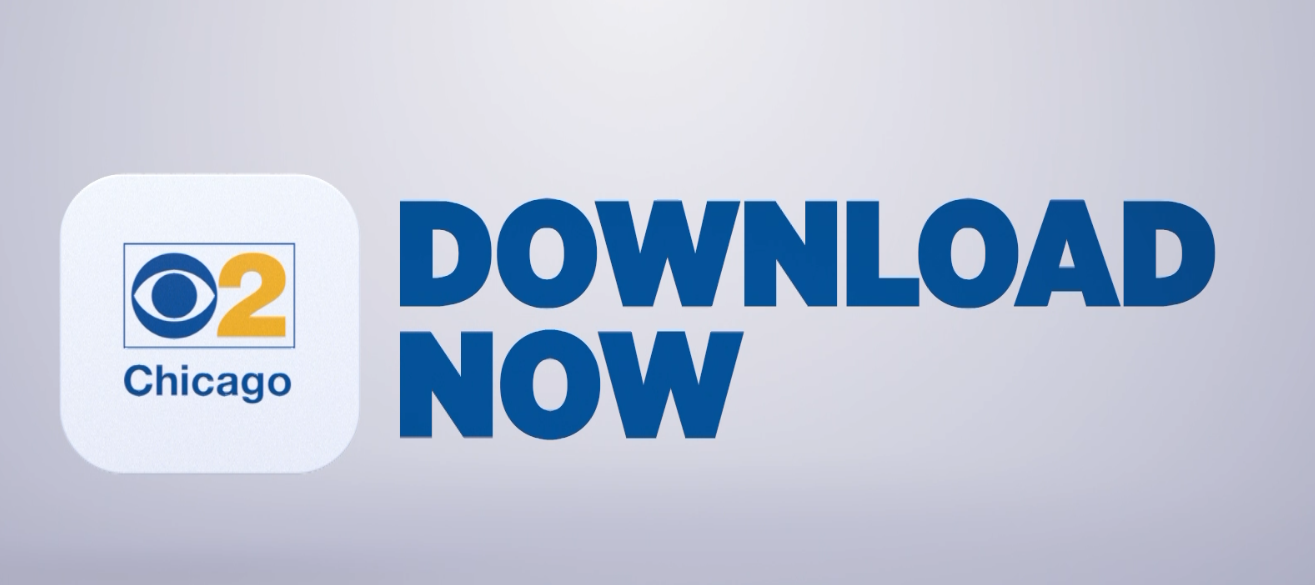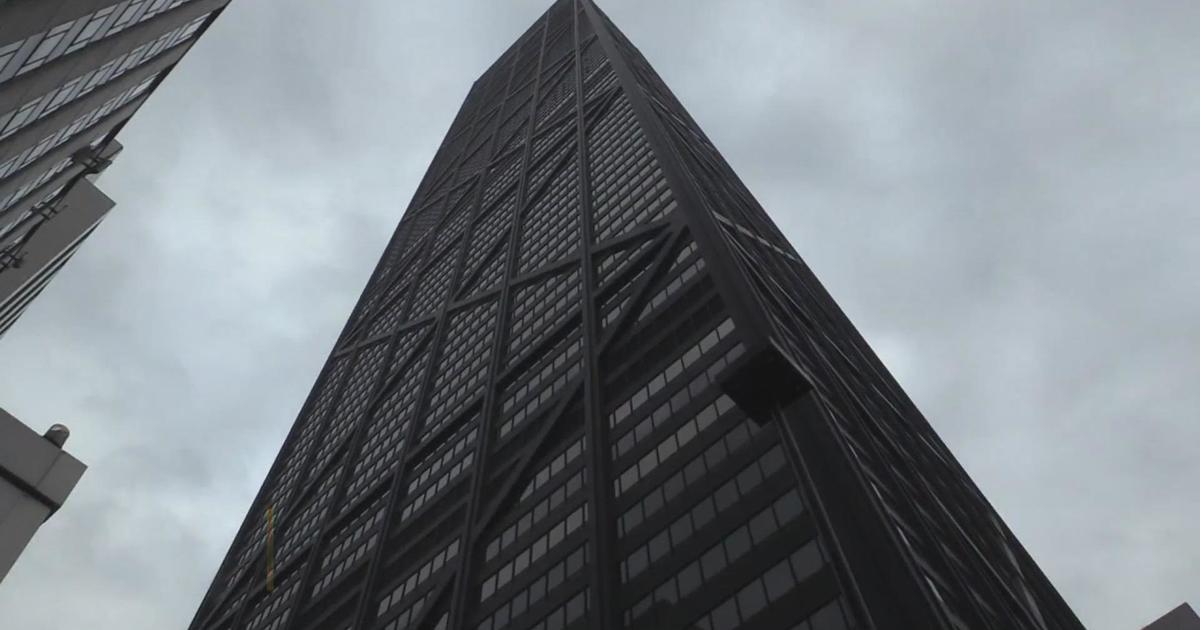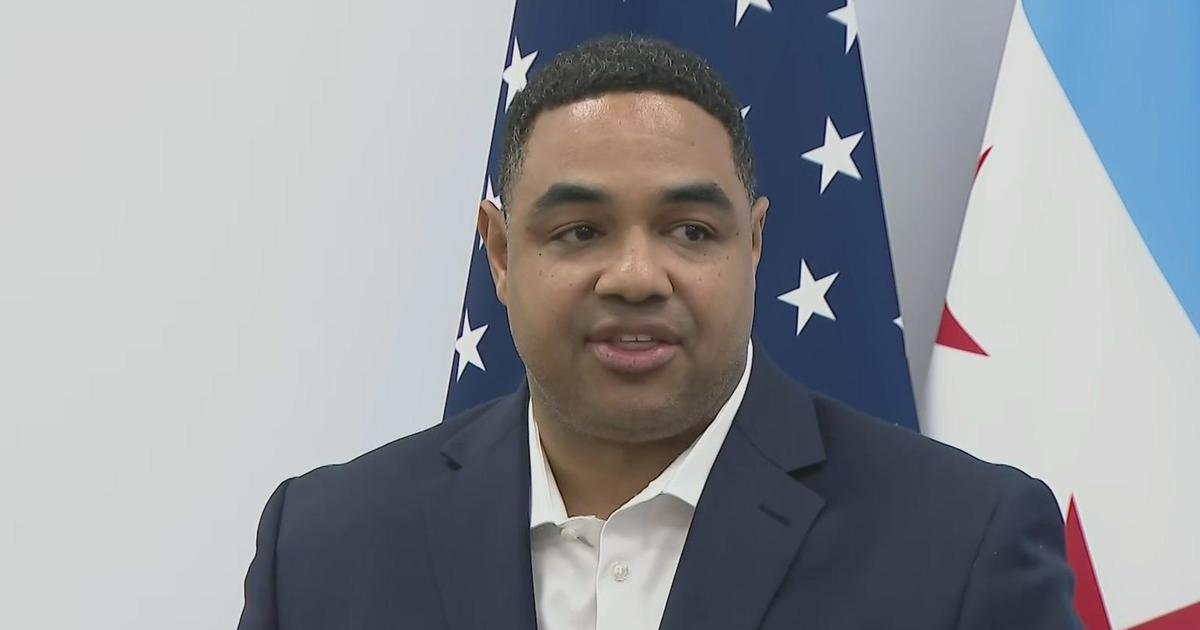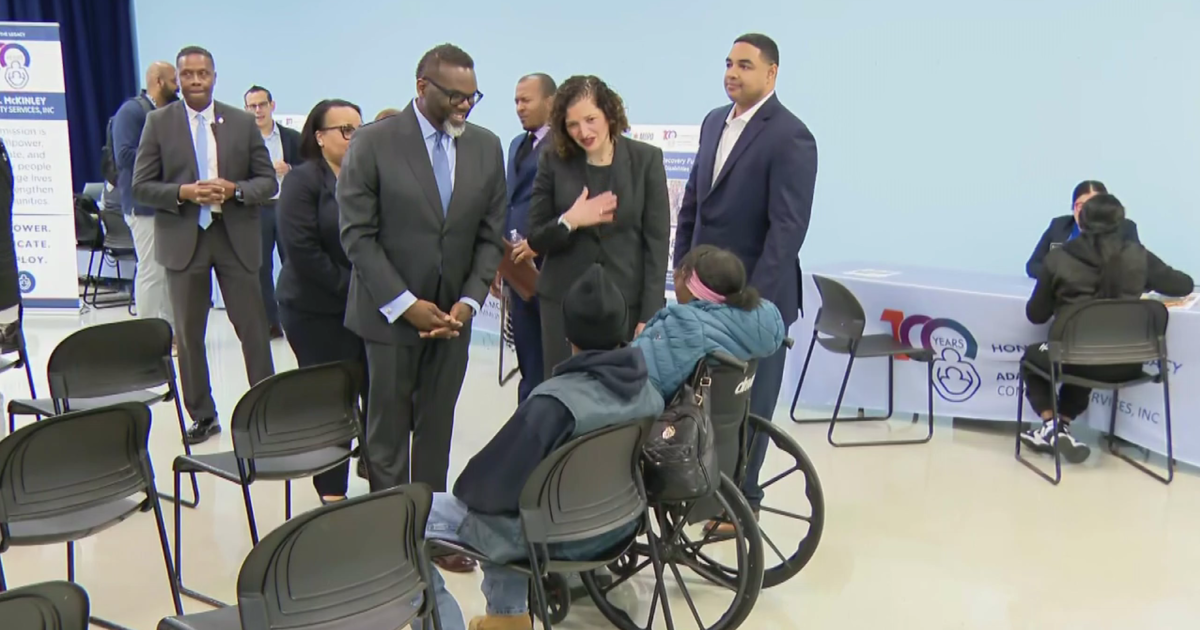Chicago's Mayor Puts Out New COVID Stay At Home Advisory, More Restrictions Based On Case Surge Throughout The City
CHICAGO (CBS) -- With COVID cases continuing to not only go up but spiking in a very high direction, Chicago's mayor and the head of the city's health department unveiled "new steps" to help bend the curve.
A new stay at home advisory is part of "Protect Chicago" beginning on Monday November 16 and will stay in place for 30 days.
"We're asking you to avoid any non essential travel. And if you must travel, then you must either quarantine for 14 days, or depending upon the state confirm a negative COVID test before coming back," said Mayor Lori Lightfoot. "You must cancel the normal Thanksgiving plans, particularly if they include guests that do not live in your immediate household."
The mayor said since much of the COVID spread is happening in close gatherings, those activities have to be paused for now.
"Major portion of that spread is happening in our homes and private venues, with the friends and family, who we love and trust in these spaces people feel safe we you feel safe, and you let your guard down. And you're not as diligent. We have to stop and reverse this trend in order to save lives," Lightfoot said. "Every family needs to come up with their own COVID protection plan and stick to it."
Lightfoot added that the current mitigation efforts for eating and drinking establishments are still in place.
"I cannot emphasize that enough bars and restaurants, unfortunately, will remain closed for indoor dining, or curfew or non essential businesses remains in place. From 11pm to 6am. And while these restrictions remain the same. We will be ramping up our enforcement. I want to add this point, loud and clear. Please follow the rules. We want you to be able to stay open. But if you do not follow the rules, we will take swift and immediate action," Lightfoot said.
In addition to the advisory, the city will have new restrictions to limit meetings and social events to 10 individuals (both indoors and outdoors), which will also go into effect on November 16. This capacity limit applies to events such as weddings, birthday parties, business dinners/social events, and funerals, and is applicable to any venue where a meeting or social event is taking place, including meeting rooms.
But, according to Lightfoot "the capacity limit does not supersede industries that have specific capacity guidelines in place, which include fitness clubs, retail stores, personal services and movie theaters (generally, 40% or 50 individuals max., whichever is fewer.)"
Later Thursday, Gov. JB Pritzker called Lightfoot's stay-at-home advisory "a model for action for the rest of the state" given the resurgence of COVID cases statewide.
"I want to commend the mayor's decision, because it's never an easy one to make, but it's the right one," Pritzker said.
Lightfoot also had pointed words for retailers.
"I spent a lot of time traveling around the city looking from neighborhood to neighborhood. And what I've seen in some retailers is parking lots that are absolutely jammed with cars. And yet, no lines at the entrance. That tells me something. Something's not right about there. And what I've told my team is that, in those circumstances, we are going to be extraordinarily diligence and make sure that everyone is playing by the rules," Lightfoot said.
"The rapid rise that we've been experiencing here in Chicago is being felt across our state across our region, and across the nation. One month ago, our daily average of cases, had ballooned to 500 cases per day. That was up from early October late September when we were in the mid two hundreds," Lightfoot said. "Based upon our latest data, we're now seeing an average of no less than 1,900 cases every day. A month ago, our positivity rate was just over 5%. Since then, it's now almost tripled to more than 14%. In some areas of our city is actually at 25% or higher."
Details regarding the new restrictions can be found at chicago.gov/reopening.
Doctor Allison Arwady, head of the Chicago Department of Health, did not hide her frustration with people not following current COVID rules like wearing a mask and maintain social distancing. She said the city could see many more deaths if the curve does not flatten.
"I am more worried about COVID, right now, than I have been at any point since March," Arwady said, who added the multiplying cases are showing no signs to trending downward.
"We are now up to four times as many people being diagnosed every day with COVID-19 in Chicago is one month ago. Our doubling time remains at 12 days. Right now, we're getting about 2,000 new cases in every day. We're having trouble keeping up," Arwady said. "The health department is not designed to do case investigation and contact tracing to do testing for this volume. But a 12 days doubling time means that, by Thanksgiving, we might be seeing 4,000 new cases come in a day. We're not set up for this level of outbreak."
Some of the new advisory rules include:
• Only leave home to go to work or school, or for essential needs such as seeking medical care, going to the grocery store or pharmacy, picking up take-out food, or receiving deliveries. If you do leave home, practice social distancing by staying 6 feet away from others and wearing a face covering at all times.
• Do not have gatherings in your home with anybody outside of your household (except for essential staff such as home health care workers or educators), even with trusted family or friends.
• Avoid all non-essential, out-of-state travel; if travel is essential, quarantining or testing negative prior to travel is required, depending on which state a traveler is originating from.
• Comply with city and state orders, including wearing face coverings, limiting gatherings, and mandating early closure of non-essential businesses at 11pm.
• Practice social distancing and avoid touching surfaces frequently touched by others if you go outside to get fresh air.
• Use remote modes of communication like phone or video chat instead of visiting friends or family, especially on holidays such as Thanksgiving.
Chicago residents are strongly advised to:
-
- Not have guests in their homes unless they are essential workers (g., home healthcare providers or childcare workers)
- Cancel traditional Thanksgiving celebrations
- Avoid travel
The mayor said that will essential workers are excluded from the advisory, she strongly suggested that employers make the environment safe for the workers.
"There's a lot of pressure that sometimes that employers place on workers to show up, no matter how they're feeling no matter what the circumstances. We have said from day one, and I'll quote Dr. Arwady, even if you're feeling a little sick, stay home. That's essential. We've seen an uptick in circumstances where people are sick, they go into work anyway. They test positive people will have a test pending. They go into work, they test positive. Don't do either of those things. If you're sick. Stay home," Lightfoot said.
She said people should stay home even if they have a test pending.
"If you're worried that your rights as a worker will not be protected, please do call 311. We have anti-retaliation protections for workers. We intend to strictly enforce those, and we will aggressively investigate any case, any complaint or content," Lightfoot said. Obviously, we get information on a regular basis about any outbreak that's two or more in a workplace and CPH team is all over that. But as a worker, if you are sick, and you feel like your supervisor is not honoring your rights, please call 311 reported, and we will make sure that you're going to enforced."
"We are at a critical point in our ongoing fight against the COVID-19 pandemic," said BACP Commissioner Rosa Escareno. "Everybody needs to step up right now to flatten the curve, save lives and help our businesses reopen safely."
The city of Chicago will also deploy "1,000 city workers, up to 550 contact tracers and a network of hundreds of community-based organizations to reach Chicagoans who have been adversely impacted by COVID-19."
Thursday, state public health officials reported 12,702 new confirmed or probable COVID-19 cases in Illinois, the third day in a row Illinois has set a new daily case count record. Illinois also reported a new high of more than 5,200 coronavirus hospitalizations.
Illinois has now reported more than 12,000 new coronavirus cases four times in the past six days. The previous record was 12,657 new cases reported on Wednesday.
The Illinois Department of Public Health also reported 43 new COVID-19 deaths on Thursday.
Since the start of the pandemic, IDPH has reported a total of 536,542 coronavirus cases, including 10,477 deaths.
The new surge of COVID-19 in Illinois continues unabated, with the state again reaching a new high mark for new cases, as well as setting a new record for coronavirus hospitalizations. Deaths from the virus also reached levels not seen in nearly six months.
The state is now urging all Illinoisans to stay at home as much as possible for the next three weeks, work from home if they can, avoid gatherings, and limit themselves to essential travel only to reduce the spread of the virus.
Also From CBS Chicago:
- Sources: Former Police Supt. Eddie Johnson Pushed His Wife Away When She Tried To Stop Him From Burning Her Underwear
- Scammers Hustle Way Into 93-Year-Old Steger Woman's House, But Her Son Is Watching It All On Camera
- IDES Fraud Continues To Run Rampant, Frustrating People Who Were Scammed






